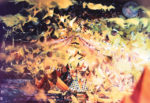Jonathan Dodd’s latest column. Guest opinion articles do not necessarily reflect the views of the publication. Ed
I have to say that I’m a fan of science fiction. I make the distinction between this and a Science Fiction Fan. I don’t read a lot of it nowadays, but there were a few years when I read almost nothing but. And there’s the other world (literally) of the Science Fiction film.
Science Fiction is bound up with technology. Many of the first films were about space travel, probably because the new directors found they were able to play with the medium and create special effects that had never been seen before – or even imagined. Anyone who has seen that picture from the Georges Méliès film ‘A Trip to the Moon’ from 1902 will still be astonished to see the Moon’s face with a giant bullet stuck in its eye.
The future looks bright, sometimes
The thing that I like most about Science Fiction is the freedom to dream and imagine possibilities that are different to our everyday experience. They give us a glimpse of how life might have been, or still could be. The creators in SF think both ways – the future looks bright, sometimes. At other times it looks horribly dark.
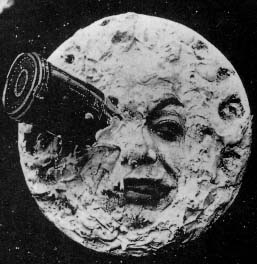 For a while, SF was entirely fantastical, as with Méliès and Jules Verne, but technology has always gone hand in hand with SF. At some point scientists and government thinkers realised that the ideas in SF should be investigated, and many of the technological marvels we have now were first described in the pages of SF books.
For a while, SF was entirely fantastical, as with Méliès and Jules Verne, but technology has always gone hand in hand with SF. At some point scientists and government thinkers realised that the ideas in SF should be investigated, and many of the technological marvels we have now were first described in the pages of SF books.
The richest man on earth
Arthur C. Clarke has been quoted as regretting not copyrighting his idea of geostationary satellites back in the 1940s, because that would have made him the richest man on earth. We’re now entirely dependent on them for all our communications networks. Lots of other SF writers could say similar things.
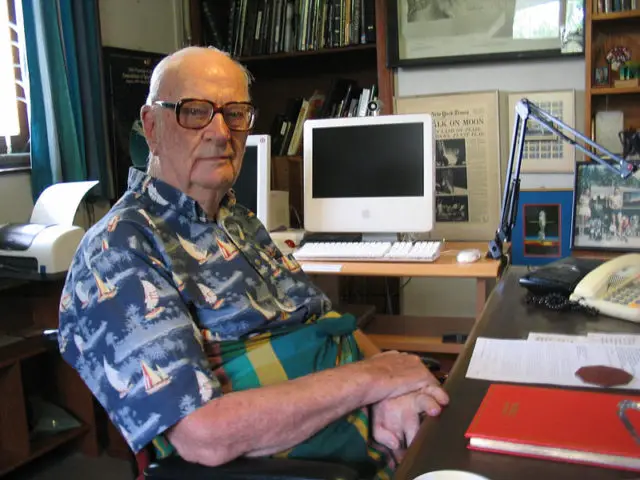
Many so-called ‘serious’ readers turn their noses up at the SF genre, because for them the actual writing as a skill and an art form is as important as characterisation and story, and I don’t disagree with that, I just feel that this particular bathtub is big enough to hold many babies. There’s no need to throw the bathwater out, whether it contains any babies or not. Personally, I enjoy both, as well as several other genres.
Every day something new appears
As a genre, SF is characterised by lots of ideas, and lots of energy, and boundless enthusiasm. Whether you’re writing an immensely long and complex saga that spans galaxies, or describing how one human can survive being marooned on Mars long after his food runs out, there’s no mistaking the delight in posing questions and exploring ideas and working out how they may change our behaviour or work with, or against us.
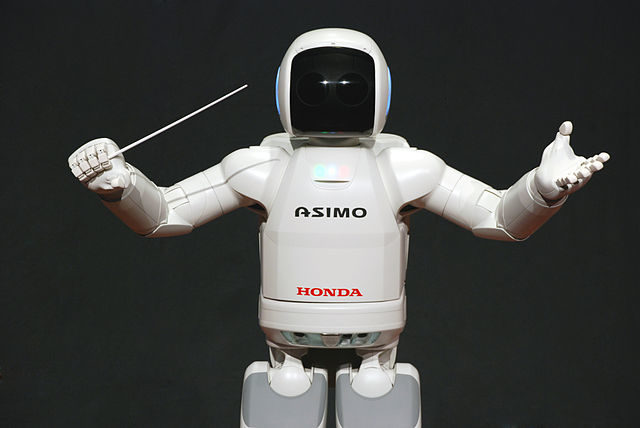
This is exactly what happens to us all the time. Every day something new appears that blows our minds. 3D printers. Software that can recognise you walking in a crowd. Driverless cars. Artificial legs that allow paralysed people to walk. I love the thing that lets you know when your tyres need reflating. I sprained my brain about how you could make such a thing work many years ago, and now it’s here. Maybe on a dashboard in front of you.
Your bottom Tallurian Yekel
SF often gives us a lead on these new things that are coming our way. Partly because someone thought of them, but mostly because clever engineers and technologists watch the same movies and want to make it so. If you read it in a book or see it in a movie, you can bet your bottom Tallurian Yekel that someone somewhere is researching it like crazy as you read this. And tomorrow it’ll be available on the Internet.
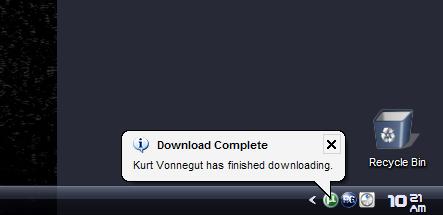
Of course, all this can go very wrong, and our history is littered with failed experiments of various kinds. Some of them were very small, and others can be potentially lethal. But it’s all a perfect example of the truth of the legends of Aladdin and Pandora’s Box. Once the genie is out or the lid opened, it’s already too late to stuff everything back inside.
Absolutely no sign of mobile telephones
I’ve had lots of wonderful experiences reading and watching SF. Much of it lives on inside me. I’m a child of Clarke and Heinlein, Aldiss and Vonnegut, E.E. Smith and Star Wars, Doomwatch and the War of the Worlds, Blade Runner and so on and so on. And Interstellar and the Marian, and 2001.
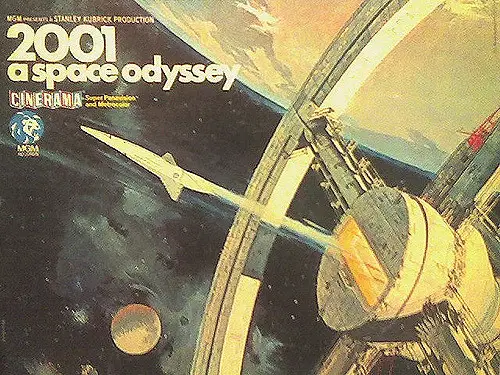
I first saw 2001 back in 1968, when it was premiered. It seems so long ago. The effects are still of the highest quality, and all done with models, decades before computers became as numerous as us humans. The things I am most delighted about are how wrong it all turned out to be. There was a Hilton Hotel in the shape of a huge double wheel, rotating in outer orbit. There was absolutely no sign of mobile telephones or any kind of Internet, and the toilet arrangements were complicated, to say the least.
Uniquely human inventiveness
2001 was huge and stately and unhurried, and beautiful. It opened up the idea of space travel as a new frontier that we could actually explore. And conquer. And mould to our will. It addressed our fears of technology with a computer that refused to obey orders because it had started to think for itself, and it explored the extraordinary and uniquely human inventiveness needed to survive. And the ending is uniquely challenging.
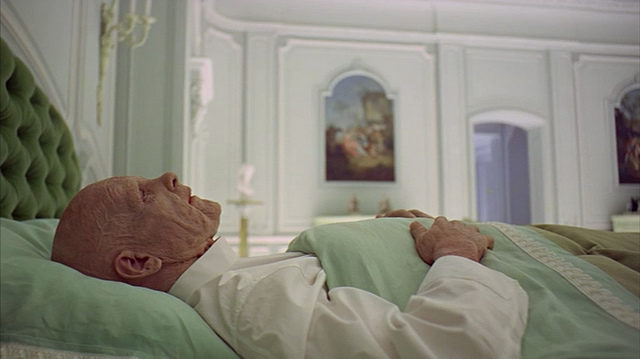
2001 created a look-and-feel of the future in a grand way. Recently we’ve had another great film about the future called Interstellar. It postulates a near future that becomes bleak here on earth, and a tendency we have to turn our heads and hope that troubles will go away. It tells the story of dogged scientists battling huge odds and terrifying uncertainties, trying to make a new future for the human race before it’s too late, and it’s equally huge and long and beautiful and stately and mind-boggling.
Good and bad cussedness
As you can tell, I’m a sucker for grand visions and enthusiasm. There’s something enticing about imagining the future. You’re almost bound to get so many things wrong, but you’re really talking about us. Humans. Our spirit and intelligence and sheer cussedness (good and bad cussedness), and our ability to find a way to survive and thrive in the most inhospitable places.

Sometimes, there are times when everything seems calm and quiet, or at least all the problems of the world are happening somewhere else. We have a perfectly understandable habit of wanting to get on with our lives and expect things to stay the same. But it’s no coincidence that it’s only in fairy stories that people get to live happily ever after.
The ride may become a bit bumpy
My parents had to live in difficult times, when evil set out to wipe away so many of the things we hold dear. They managed to hold it at bay, and our lives benefit from their efforts. I have a feeling that the world is becoming more turbulent in many ways. The certainties we thought we had may turn out not to be certainties at all. The ride may become a bit bumpy as the balances of power in the world start readjusting themselves, like the grinding of tectonic plates beneath our feet.
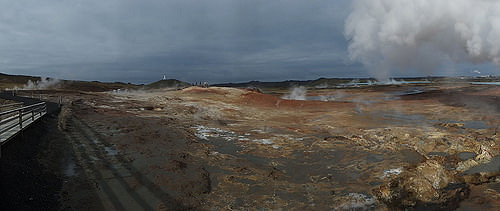
There are two things certain in this life. Things change, and there’s pain as well as comfort out there. We don’t know what changes are coming. They may be great, or they may be dire. SF is one of the things that help us to exercise our imaginations so we can be a little bit readier when – or if – the ground starts shaking.
One of the most useful things you can carry
25th May is Towel Day, in honour of the late great and much-lamented Douglas Adams, the writer and creative genius behind the Hitch Hiker’s Guide to the Galaxy. The significance of the towel is that it’s one of the most useful things you can carry in your bag if you become an itinerant hitch hiker in Space.
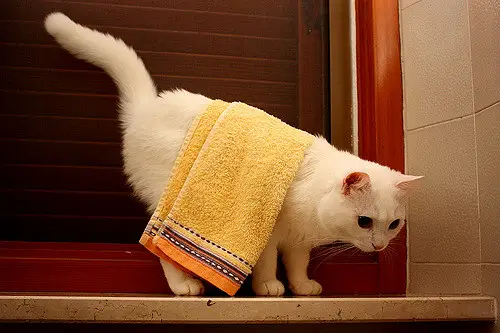
Ford Prefect, the travel-writer from Betelgeuse, explains this to Arthur Dent, the last human survivor of the destruction of the Earth. There’s a saying – “There’s a hoopy frood who really knows where his towel is”. People all over the world post pictures of themselves with their towels on Facebook on that day.
I know where my towel is. Do you?
If you have been, thank you for reading this.
Image: spyndle under CC BY 2.0
Image: public domain
Image: Mamyjomarash under CC BY 2.0
Image: Vanillase under CC BY 2.0
Image: meerling under CC BY 2.0
Image: reckon under CC BY 2.0
Image: wonderlane under CC BY 2.0
Image: princessashley under CC BY 2.0
Image: domfell under CC BY 2.0
Image: notoriousxl under CC BY 2.0



